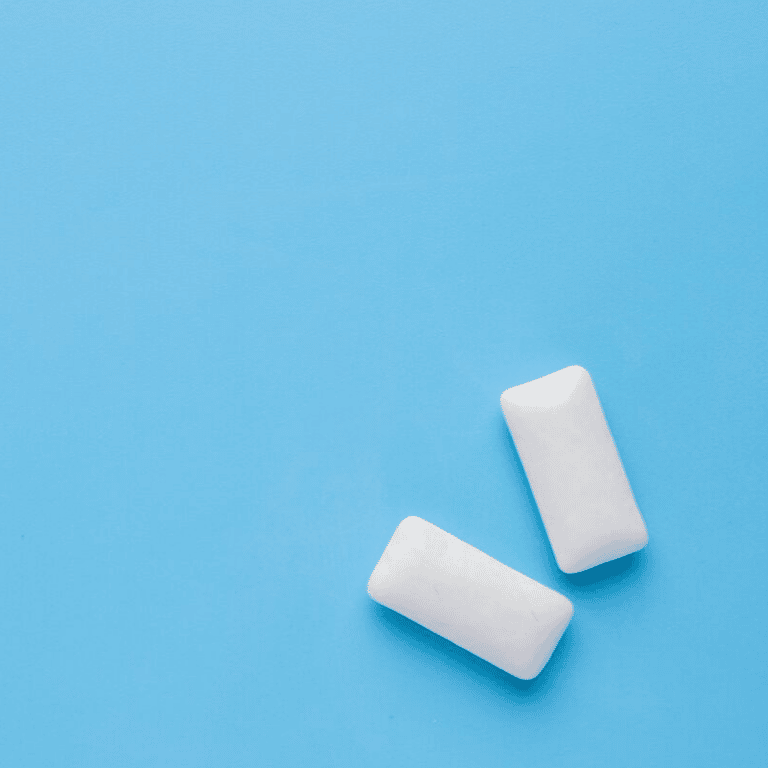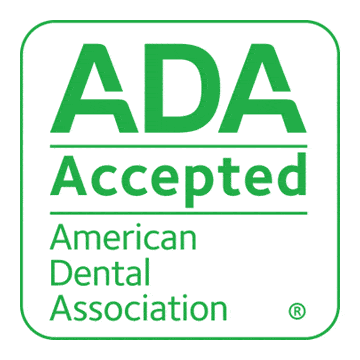
Cavities form when bacteria feed on the residual sugars and starches left in your mouth from eating and drinking. Eating and drinking high-sugar food and beverages transfers more sugar to your mouth, sugar that you may not be able to completely remove, even with brushing and flossing. When a bacterial cell absorbs that sugar, it receives the energy it needs to reproduce. If you don’t—or can’t—remove the bacteria either by brushing and flossing your teeth, it will continue to multiply and produce damaging acids, resulting in tooth decay and gum disease.
For most dentists, chewing gum tends to fall squarely in the category of cavity-causers. Chewing sugary gum introduces more sugar into your mouth and as the sugar dissolves in your saliva, the bacteria in plaque absorb it, giving the bacteria plenty of energy to start reproducing.
However, if you’re one of the millions of Americans who chew gum—and more than half of us do!—all may not be lost. There is an alternative to sugary gum that may even help improve your oral health.

Instead of being sweetened with sugar, sugar-free gum is sweetened with sugar alcohols or artificial sugar like xylitol, a naturally-occurring sweetener found in vegetables and fruits. It contains half the calories of sugar and is safe even for diabetics to consume. Like sugar, xylitol is easily absorbed by bacteria. However, once it is absorbed, the bacteria will use their energy to expel the xylitol instead of reproducing, making it less able to stick to your teeth and causing them to die off.
Sugar-free gum is gum that contains less than 0.5 g of sugar per serving.

Although chewing sugar-free gum is beneficial for the reasons listed above, gum that contains sugar negates those benefits because it introduces more sugar into your mouth. It’s essential to limit sugar consumption for optimal oral health, even in the form of gum, because the bacteria in your mouth feed on sugar and produce acids that lead to decay.
When you chew sugary gum, the sugar dissolves in your saliva, and the bacteria in plaque absorb it. When a bacterial cell absorbs sugar, it receives the energy it needs to reproduce. If you don’t remove the bacteria by brushing your teeth, it will continue to multiply, resulting in tooth decay and gum disease.
On the other hand, chewing gum that contains xylitol instead of sugar has the opposite effect. Xylitol is a naturally-occurring sweetener found in vegetables and fruits. It contains little more than half the calories of sugar and is safe even for diabetics to consume. Like sugar, xylitol is easily absorbed by bacteria. However, once it is absorbed, the bacteria will expel it. Because the bacteria uses its energy expelling the xylitol instead of reproducing, it is less able to stick to the teeth. Eventually, it dies.
Without the harmful sugars of regular gum, sugar-free gum is not nearly as bad for you to chew, and may even have some possible benefits.
By increasing the saliva production in your mouth, chewing sugar-free gum can help reduce the unpleasant symptoms of dry mouth (including bad breath), flush out food particles that could lead to cavities or gum disease, and neutralizes acids in the mouth, which may help minimize acid reflux and enamel erosion.
Increased saliva production has also been shown to strengthen your teeth’s enamel, the hard mineralized substance that protects the surface of the teeth. The saliva produced when you chew gum is stimulated saliva, which has a higher concentration of the proteins your teeth need to defend against the erosive acids in foods and drinks.

Sugar-free gums bearing the American Dental Association (ADA) seal of approval include those that contain xylitol, aspartame, sorbitol, and mannitol – all sweeteners that do not cause cavities. There are many gums on the market bearing the ADA seal that meet their criteria for effectiveness and safety. These products include Dentyne Ice Sugarless, Trident Sugarless, Wrigley’s 5 Sugar-Free, Wrigley’s Extra Sugar-Free, Wrigley’s Orbit Sugar-Free, and Wrigley’s Orbit for Kids Sugar-Free. The ADA and dentists alike recommend chewing sugar-free gum for about 20 minutes after you eat or drink.
Chewing sugar-free gum in moderation does offer some temporary benefits, but it is no substitute for good oral hygiene practices like daily brushing and flossing and thorough dental cleanings and checkups. Even if you regularly chew sugar-free gum, you still need to brush your teeth at least twice a day with fluoride toothpaste and floss at least once a day. Routine six-month dental checkups and cleanings are also important for removing accumulated bacteria and plaque that your toothbrush may have missed, as well as for evaluating your overall oral health.
While chewing sugar-free gum may be the most fun way to care for your teeth, it shouldn’t be the only one.
Dental Depot Oklahoma is your partner for clean teeth, offering comprehensive dental care for everyone in your family, all at locations and times that are convenient for you. From routine cleanings and checkups to preventative options like fluoride treatment or dental sealants, Dental Depot helps you keep strong and healthy teeth for life.
Dental Depot Oklahoma is a family-owned and operated practice committed to preserving the dental health of our fellow Oklahomans. We believe receiving quality dental care shouldn’t be a hassle; that’s why we offer flexible scheduling, Saturday appointments, and even the option to schedule everyone in your family at the same time. With a staff that includes caring, experienced dentists and dental hygienists—as well as periodontal specialists, oral and maxillofacial surgeons, and orthodontists—Dental Depot is here to meet all of your family’s dental needs at every stage of life.
To find your nearest Dental Depot location or to schedule an appointment, click here. We can’t wait to care for you!